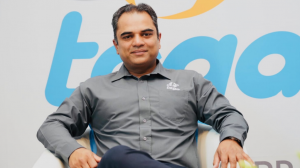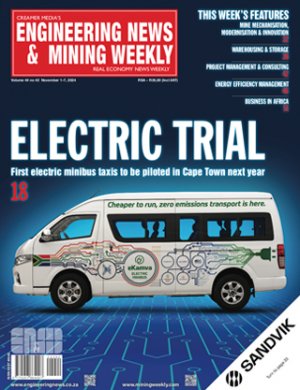Mining engineering solutions company Tega Industries Africa will start manufacturing capital equipment following its acquisition of US-based McNally Sayaji Equipment.
The merged and rebranded Tega McNally Minerals will supply a broader range of solutions for the global mining market, including apron feeders, jaw crushers, ring granulators, hammer mills, vibrating screens, grinding mills, thickeners, flotation cells, scrubbers, slurry pumps and solid bowl centrifuges.
Tega has been a critical spares supplier to mines and materials handling operations for almost 50 years but can now supply the full solution from mills or screens to liners and consumables.
The company recently moved into a larger 45 000 m2 manufacturing facility space in South Africa from Benoni to Brakpan. The South African subsidiary of Tega serves customers in Zambia, the Democratic Republic of Congo, Tanzania, Botswana, Mozambique, Ghana, Mali and Burkina Faso, in addition to the South African market.
“Tega has lived by its philosophy to work together with its clients in an effort to enhance productivity through innovative and effective solutions. Its collaborative approach has earned the trust of clients and in just over two decades since establishing a manufacturing plant in South Africa, the company has become synonymous with minerals beneficiation,” said CEO Vishal Gautam.
He spoke during a technical conclave hosted by Tega on November 21, in Pretoria, highlighting how Tega’s products have always strived to improve processes and address pain points and bottlenecks on plants.
Tega India was incorporated in 1976 and set up a subsidiary in South Africa in 2002. The group has distinguished itself as a lasting solutions provider to the complex problems of materials handling, wear and separation of ores in the mining and mineral processing industry.
Tega has six manufacturing facilities in Chile, Australia, South Africa and India, which export products to 72 countries.
Gautam highlighted that among the group’s most successful innovations has been its DynaPrime combination liner, which involves steel and rubber being successfully bound to form a liner that is lighter, quicker to install and more durable than conventional steel liners.
For example, Tega global sales and marketing head Vinay Grover explained that the hybrid liner weighs 215 t, compared with typical steel liners of 240 t, with a 75-hour relining time against 85 hours of relining time for a conventional steel liner.
The bolting of these liners happens outside, which also saves time and ensures safety for operators, with no slurry contact with the bolts over the liners’ lifetime.
Cast steel liners have an average level of 325 Brinell hardness number (BHN), while Tega’s rolled steel and rubber liners have a hardness of between 425 BHN and 475 BHN, with improved shock absorption. The DynaPrime liners also tend to keep load tension better than cast liners during the first five months of operation.
These hybrid liners also produce less noise and are less carbon intensive to produce. Owing to the lower weight of the liners, it saves up to 1 MW of energy in a typical semiautogenous grinding mill, compared with the power consumption related to steel liners.
Grover and Gautam used the conclave event to thank customers and shareholders for their continued support and collaboration to develop world-class mineral processing solutions.
Edited by: Chanel de Bruyn
Creamer Media Senior Deputy Editor Online
EMAIL THIS ARTICLE SAVE THIS ARTICLE
ARTICLE ENQUIRY
To subscribe email subscriptions@creamermedia.co.za or click here
To advertise email advertising@creamermedia.co.za or click here












